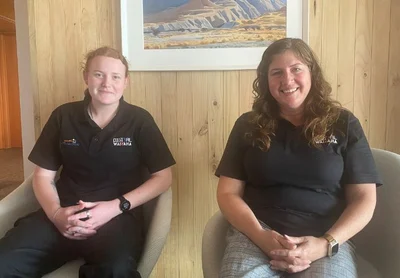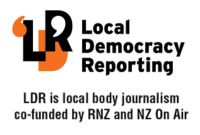Teaching online safety as essential as road safety

Children should be taught to navigate the digital world the same way they are taught to cross the road, Digital Waitaha says.
Lead coordinator Neysa Koizumi said ‘stop, block, and talk’ is a digital safety strategy they have developed that every child should learn when they get a digital device
“We didn’t wait until our kids were almost hit by a bus to teach them to cross the road safely.
“We absolutely cannot continue to let our kids use devices without digital safety strategies.
A presentation to the Ashburton District Council last week detailed how they are teaching the strategy in schools across the district.
Stop, block, and talk is the online safety version of slip, slop, slap that advises people to stop engaging with the negative content, block the source, and talk to an adult.
The organisation also runs a parent programme to equip adults to help their children in a rapidly advancing technological world.
It’s all new technology and new challenges, Koizumi said.
“This is the first time ever that our young people aren’t able to have the wisdom of our elders.
“We need to go to our young people to get the wisdom so that we can turn around and help them.”
Ashburton Mayor Neil Brown described the presentation as eye-opening.
He asked if there was an app or program to stop the exposure to unwanted material and messages.
While there are layers of protection available, there is no way to stop it, Koizumi said.
“There are no kids growing up in isolation anymore.”
Digital Waitaha acting chair Megan Rutter presented the eye-opening statistic that by the time a girl “is in Y7 she has already seen a dick pic” if they have Snapchat.
The “normalisation of nudes” is now common in younger children, Koizumi said.
“If I’m saying the word penis in here and if I’m making any people feel uncomfortable, I can tell you our kids are talking about it in a way that they are very comfortable about, so we have to be the adults in the room.
“These kids are normalising these conversations so we need to get out in front of it to make sure these kids don’t feel shame and we are averting mental health issues because we are empowering them beforehand.”
To help in their efforts to spread the digital safety message, Digital Waitaha wants to host a youth event at Te Whare Whakatere, Ashburton’s library and civic centre, in June.
The event would cover some of the dangers of social media and digital devices as well as provide online safety strategies.
It is aimed at youth, from primary age right up to secondary school, as well as their parents and caregivers, and anyone that works with youth, Koizumi said.
FIND OUT MORE: Digital Waitaha
By Jonathan Leask

